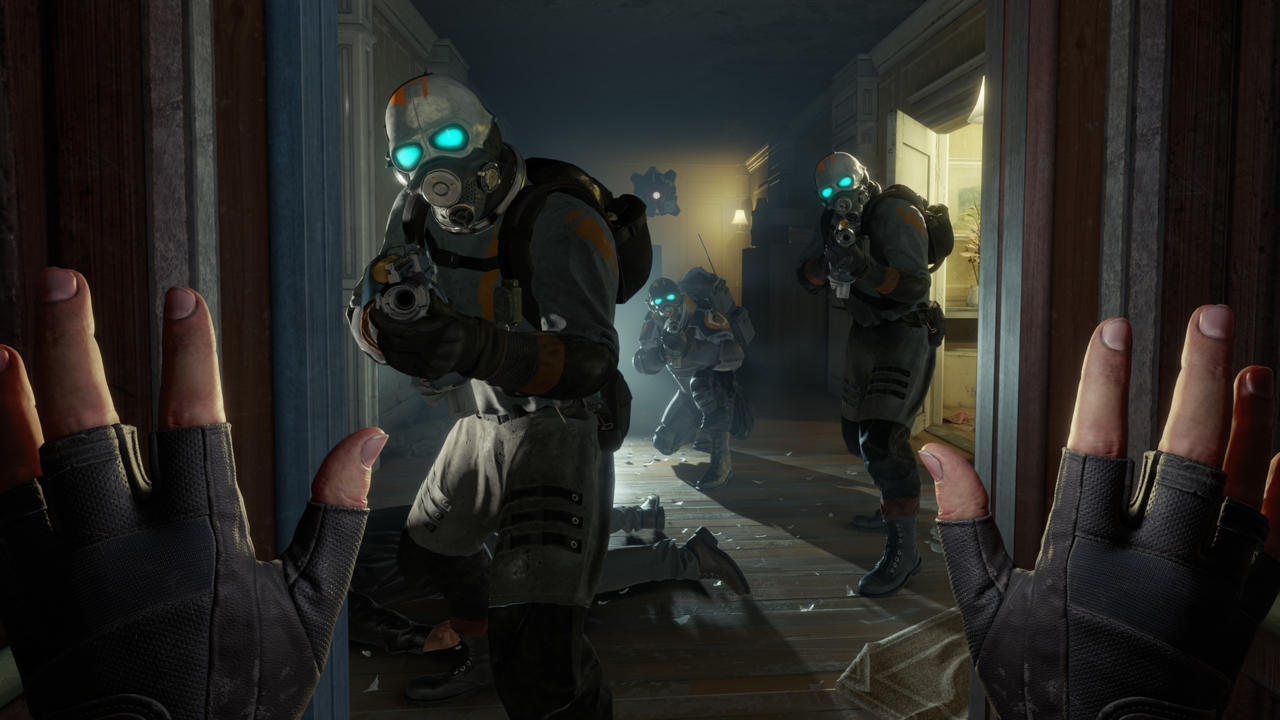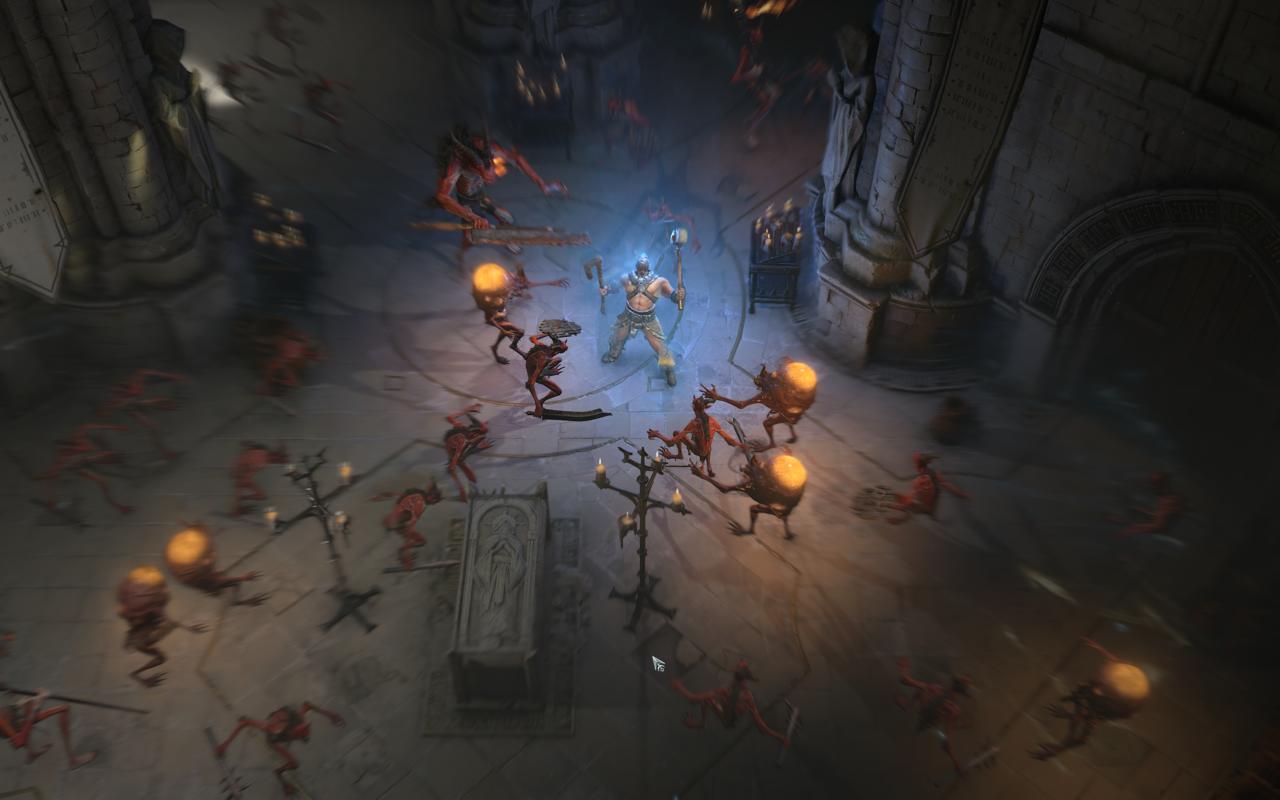A whole lot happened in 2019. The year saw some major games finally come to fruition, like the long-awaited Death Stranding from Kojima Productions, as well as some forward motion in new services like Xbox Game Pass and Google Stadia. But looming over most of 2019 was something even larger: 2020. This year was full of forward-looking developments in gaming, setting up a year that has the potential to be littered with major moments and sweeping changes to the industry's landscape.
Of course, there are major games on the horizon, like The Last Of Us Part II or Cyberpunk 2077. More than that, though, are the moves developers, publishers, and major tech companies are making that could recontextualize the entire industry. New hardware is set to bring another technical leap forward in the console games we play. Major players are getting in on streaming and subscription services. Long-dormant franchises could see resurgences. And more and more companies are looking at new business models for their games--and trying to save games they've already released from rocky starts.
We got our first look at what 2020 holds throughout 2019, and there's a lot that could bring major changes to the gaming industry in the very near future. Here's a rundown of everything that turned 2019 into the Year of 2020.
Next-Gen Consoles Are Coming
Nothing has quite an impact on the gaming landscape as new console hardware, and in 2019, we started getting details about what Sony and Microsoft have planned for the next console generation. Both the PlayStation 5 and the next Xbox, codenamed "Project Scarlett," are slated for release in 2020 during the holiday season, which means the current console generation is quickly coming to an end. And that means we'll soon start to see a crop of games that show off the capabilities of the new hardware.
Both consoles will feature solid-state drives for storage, as opposed to the current hard disk standard, although neither has a price point yet. The PS5 is confirmed to include a disc drive and to support 4K Blu-ray discs, while reports on Microsoft's new Xbox suggest it has two versions, one of which may focus on streaming and forego a disc drive altogether, like the Xbox One S All-Digital. The PS5 is also confirmed to support backward compatibility with PS4 games and PlayStation VR. Scarlett looks slated for release during the 2020 holiday season, while the PS5 is confirmed to hit shelves in Holiday 2020.
We're sure to get more information about the future of PS5 and Project Scarlett throughout 2020, as well as some of the games that'll show up on them. The big question is what the new hardware will allow developers to do with their games that they couldn't before--something we're sure to see in the coming months.
The Year Of Streaming And Subscriptions
Apart from new Xbox hardware, Microsoft is making another big move in gaming in the form of its xCloud streaming technology. The service looks to make console-quality games playable on a variety of hardware, including on on PCs and Macs through their internet browsers and mobile devices, through online streaming. Given the robust library of Microsoft's Game Pass offerings, which make all first-party games and a variety of other titles available to subscribers on Xbox One and PC for a monthly fee, xCloud could be a formidable entrant into the widening field of streaming services--especially since Microsoft is packaging it with Xbox Game Pass in 2020.

Google also recently launched its Stadia streaming service, which offers a lot of the same capabilities as what Microsoft is bringing with xCloud. While the service launched in 2019, Stadia saw something of a rocky launch, with a small library of games and a thin install base that made multiplayer games tough to enjoy. But while it might have struggled at launch, Google has invested in Stadia with a new studio headed up by Motive Studios and Ubisoft Toronto founder Jade Raymond. It seems likely we'll see Google continue to push Stadia's offerings and shore up its capabilities.
With Microsoft mounting a streaming service and a heavy hitter like Google now on the gaming stage, it seems likely we'll see an uptick of emphasis on streaming from other players as well. Sony's PS Now service has existed for quite a while, though the publisher doesn't release first-party games on the service at launch. Sony recently dropped its price in a move that seems aimed to keep it competitive with Microsoft and Google's offerings. Ubisoft also recently announced a PC subscription service for its game catalog, called Uplay Plus, and there's Electronic Arts' Access subscriptions--EA Access on console and Origin Access on PC. We've also got the newly launched Apple Arcade service, a subscription for mobile games that works on iPhones, Macs, and Apple TV, and services such as Nvidia's GeForce Now, which lets you stream PC games you've purchased on various devices, including PCs, Macs, and Nvidia Shield.
Though the new consoles' support for disc drives suggests we won't see the elimination of physical media in the next generation, 2020 looks to be a year in which many of us will have the option to get our games primarily through subscriptions, rather than buying discs or even digital purchases.
At Long Last: More Half-Life
Possibly the least-expected announcement of 2019 came from Valve: 2020 will see a new entry in the beloved Half-Life franchise. It also wasn't the game anyone expected. Valve isn't bringing a traditional Half-Life game to PC, in which you play as series protagonist Gordon Freeman. Instead, the next title will be Half-Life: Alyx, a virtual reality game that puts you in the shoes of Half-Life 2 character Alyx Vance.

Valve's also not advancing the story beyond where it left it with Half-Life 2: Episode 2 way back in 2007. Instead, Half-Life: Alyx takes place between the first two Half-Life games and looks like it'll focus on Alyx's relationship with her father, Eli Vance. Half-Life: Alyx will work with any VR platform that's compatible with SteamVR--meaning HTC Vive, Oculus Rift, Oculus Quest, Windows Mixed Media, and Valve's VR setup, Valve Index.
There's not a ton of other information about the game just yet apart from Valve's announcement trailer. But if you've got VR equipment, we do know when you can play it: March 2020.
Half-Life: Alyx Review And Guides
- Half-Life: Alyx Review - Full-Life Consequences
- Half-Life: Alyx - 10 Essential Tips Before Playing
- How Long Is Half-Life: Alyx?
- + Show More Half-Life: Alyx Review And Guides Links (2)
- How To Play Half-Life: Alyx Seated
- The Best VR Headset In 2025
Blizzard's Resurgence
BlizzCon 2019 was a huge one for the developer, full of announcements. Three of its franchises are seeing major continuations in the future (to say nothing of new content coming to Hearthstone and Heroes of the Storm), and while we're not sure if they'll all come out in 2020, it's very possible we'll see some new Blizzard games in the coming year.
After seven years since the release of Diablo 3, Blizzard dropped the bomb of Diablo 4 at the convention, showing off not just a new trailer for the game but a playable slice of the game. It makes some big changes to the franchise, taking some influences from live games. Instead of just playing cooperatively with other players in your party, Diablo 4's overworld is public, throwing you in with other players to meet, work with, or ignore, and adding elements like world bosses and public events to take part in as you explore.

Blizzard also announced a sequel to its multiplayer hero shooter, Overwatch. Up to now, Overwatch has largely been a competitive multiplayer experience, with its broader story relegated to supplementary material like trailers and videos. Overwatch 2 will feature a story campaign and single-player activities, as well as cooperative missions--expanding on the story side of Overwatch and giving you new options to play. But the competitive part is still a huge part of the game, and Blizzard intends to avoid fracturing the current Overwatch community by making Overwatch and Overwatch 2 competitive gameplay compatible with each other. All new characters and maps will also be available in both games, so even if you choose not to buy Overwatch 2, you'll still be able to keep playing the game as you know it.
The third of the big announcements is a new expansion for World of Warcraft. Shadowlands expands on Blizzard's 15-year-old MMO by taking players into Azeroth's afterlife, opening up a whole new area to explore, as well as expanding on lore that Blizzard has never really explored before. The expansion is also putting a big emphasis on player choice, allowing you to choose from a variety of factions to join in the Shadowlands, and providing specific endgame story campaigns based on your choices.
We don't know when exactly Blizzard will release any of those titles--and with Blizzard, it might be a while. A big showing at BlizzCon was welcome for the company, which was facing still-lingering controversy over its ruling against a Hearthstone player who expressed support for the Hong Kong protests. But BlizzCon 2019 set up the possibility for continuations of Blizzard's major franchises in 2020, and even if those games aren't actually playable next year, they're sure to be on a lot of minds.
BlizzCon News
- BlizzCon 2019 News: Overwatch 2, Diablo 4, And Everything Else Announced
- New Hero Confirmed For Overwatch 2: Sojourn
- BlizzCon Schedule: Overwatch 2, Diablo 4 Unveiling, And More
- + Show More BlizzCon News Links (7)
- Overwatch 2 Announced, Includes PvP And PvE
- What Overwatch 2 Means For Current Players
- Diablo 4 Announced At BlizzCon 2019
- Diablo 4 Gameplay Trailer Shows The New RPG In Action
- New WoW Shadowlands Expansion Trailer Released At BlizzCon 2019
- Hearthstone Expansion "Descent of Dragons" Announced, Coming In December
- Here's Every Hearthstone "Descent Of Dragons" Card (So Far)
More Long-Awaited Releases
While we haven't been waiting for them as long as we have for a new Half-Life game, there are a few other well-loved franchises finally getting their sequels (and remakes) in 2020. Square Enix is releasing the first episode of its Final Fantasy VII Remake in March, bringing the game back to the fore after 22 years. The first part of the remake covers the portion of Final Fantasy VII that takes place in Midgar, but we're still not sure how many episodes the game will span, how long it'll be in total, or when it'll all be released.
Tombwater - Playable Demo Reveal Trailer The Elder Scrolls IV: Oblivion Remastered - Official Full Reveal Presentation Monster Hunter Wilds – Festival of Accord: Blossomdance | Spring Seasonal Event Trailer DRAGON BALL: Sparking! ZERO - DAIMA Character Pack 1 Gameplay Trailer Diablo 4 x Berserk | Official Full Animated Reveal Trailer Zenless Zone Zero - Vivian Character Demo | "Love Like a Bouquet" Capcom Fighting Collection 2 - Power Stone 2 and Capcom Fighting Evolution | Game Spotlight Trailer FATAL FURY: City of the Wolves|Official Play Guide Trailer Fortnite Galactic Battle Teaser Trailer DOOM: The Dark Ages | Official Gameplay Trailer 2 | Available May 15, 2025 The Oblivion Remaster Needs To Be Bad In Order To Be Good Zenless Zone Zero - Vivian Character Teaser | "When Birds Sing"
Please enter your date of birth to view this video
By clicking 'enter', you agree to GameSpot's
Terms of Use and Privacy Policy
The Last of Us Part II is finally poised for release in 2020 as well. The second part of Naughty Dog's post-apocalyptic action-adventure game returns to the story of Joel and Ellie, but this time, Ellie is the player character throughout the game. Ellie has become a capable warrior in the years since The Last of Us, and she embarks on a revenge quest after a vicious attack on her friend and love interest Dina. We know she'll also work with other characters, including Joel, and that the game will be as bleak and story-focused as its predecessor.
We're also about to see the wait for CD Projekt Red's follow-up to The Witcher franchise, Cyberpunk 2077, come to an end. CD Projekt revealed a bunch of new details about the upcoming action-RPG in 2019, including the addition of actor Keanu Reeves as Johnny Silverhand, a major character in the franchise. Cyberpunk 2077 looks to be about as expansive and detailed as The Witcher games, as players have come to expect, with plenty of options that let you alter your path through the game based on your choices, how you build your character, how you interact with the people you meet in the game, and how you approach its various combat encounters.
Microsoft is set to continue the Halo franchise in 2020 as well, with Halo: Infinite, just in time for the launch of Project Scarlett. The game puts you back in the role of series protagonist Master Chief, though we don't know much else. The game is set for release on Xbox One and PC in Holiday 2020, while also serving as a launch title for Project Scarlett, with a beta coming before its launch that'll likely give a pretty strong look at the new Halo's multiplayer offerings.

